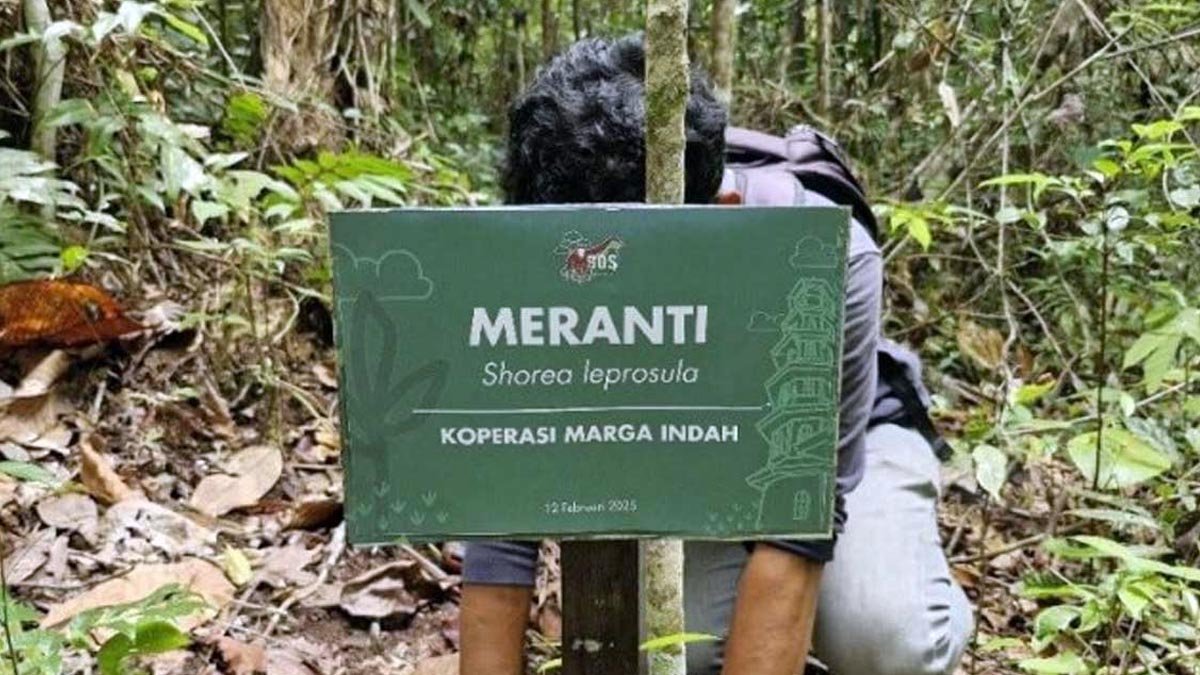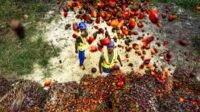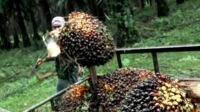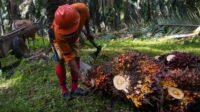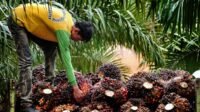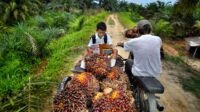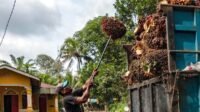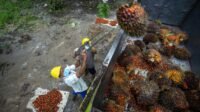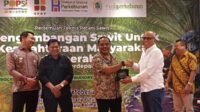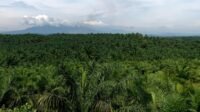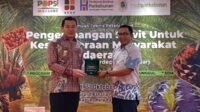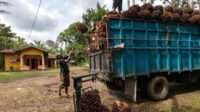PALMOILMAGAZINE, KUTAI TIMUR – Amid ongoing criticism of the palm oil industry, a group of independent oil palm farmers in East Kalimantan is choosing a different path—one rooted in hope and sustainability.
Members of Marga Indah Palm Oil Cooperative, affiliated with the Indonesian Sustainable Palm Oil Farmers Forum (FORTASBI) and certified by the Roundtable on Sustainable Palm Oil (RSPO) since 2021, recently planted ten Meranti trees at the Samboja Lestari Orangutan Rehabilitation Center. The initiative is part of their broader commitment to social and environmental responsibility.
Unlike symbolic gestures, the tree-planting effort was financed through tangible gains. Of the Rp 511 million earned by the cooperative from RSPO Credit sales in 2024, two percent was allocated for environmental programs. From this, Rp 1 million was used to plant Meranti trees—valuable hardwood species native to Kalimantan’s tropical rainforests and increasingly threatened by deforestation.
Also Read: Fortasbi and PPMH Ketapang Collaborate on Real Action for Forest Conservation in West Kalimantan
“This activity is part of our Smallholder Social Responsibility (SSR) initiative,” said Dedy Kurniawan, ICS Manager of Marga Indah Cooperative. “Our hope is that this program helps create a sustainable process for conserving orangutan habitats and preserving forest ecosystems,” he added in a statement received by Palmoilmagazine.com on Friday, May 9, 2025.
The cooperative consists of 169 smallholder farmers managing 420 hectares of RSPO-certified plantations and producing approximately 8,600 tons of Fresh Fruit Bunches (FFB) annually. Since achieving certification, the group has become more proactive in demonstrating that sustainable palm oil practices are not just corporate claims—but achievable realities for small farmers.
FORTASBI, which supports and guides smallholders through the RSPO and ISPO processes, encourages its members to move beyond paperwork compliance and take real action on the ground. The Meranti tree planting is a shining example of how sustainable practices can start at the grassroots level.
This conservation initiative also reflects a growing shift: how RSPO Credit revenues can be reinvested into ecological restoration—not just increasing profits, but delivering long-term environmental value.
In a global palm oil industry fraught with environmental scrutiny, small yet impactful actions—like planting trees to restore orangutan habitats—serve as powerful reminders that palm oil cultivation and forest conservation don’t have to be at odds. (P2)

